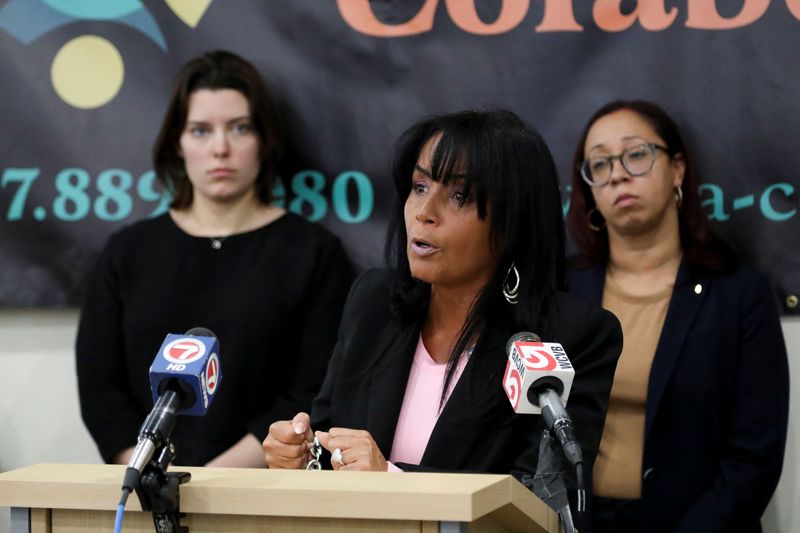
By Nate Raymond (NS:)
BOSTON (Reuters) – Democratic-led states and civil rights groups filed a series of lawsuits challenging U.S. President Donald Trump's push to revoke birthright citizenship on Tuesday, an early attempt by his opponents to block his agenda in court.
After his inauguration on Monday, Trump, a Republican, ordered US agencies to refuse to recognize the citizenship of children born in the US if their mother or father is not a US citizen or legal permanent resident.
Twenty-two Democratic-led states, along with the District of Columbia and the city of San Francisco, filed two cases in federal courts in Boston and Seattle asserting that Trump violated the US Constitution.
Two similar lawsuits were filed by the American Civil Liberties Union, immigrant organizations, and an expectant mother in the hours after Trump signed the executive order, at the start of the first major legal battle of his administration.
The lawsuits target a key part of Trump's sweeping anti-immigration campaign. If allowed to take effect, Trump's order would for the first time deprive more than 150,000 children born annually in the United States of the right to citizenship, Massachusetts Attorney General Andrea Joy Campbell's office said.
“President Trump does not have the authority to take away constitutional rights,” she said in a statement.
The states say losing citizenship would prevent these individuals from accessing federal programs like Medicaid health insurance and, when they grow older, from working legally or voting.
“Today’s direct lawsuit sends a clear message to the Trump administration that we will defend our residents and their fundamental constitutional rights,” New Jersey Attorney General Matthew Platkin said in a statement.
The White House did not respond to a request for comment.
More lawsuits are expected to be filed by Democratic-led states and advocacy groups challenging other aspects of Trump's agenda, with cases already on file challenging Elon Musk's Department of Government Efficiency and an order Trump signed to weaken job protections for civil servants.
1898 US Supreme Court precedent
Three of the four lawsuits were filed in Massachusetts and New Hampshire. Any rulings issued by judges in New England states will be reviewed by the Boston-based First U.S. Court of Appeals, the only federal appeals court whose serving judges are all appointed by Democrats.
Four states filed a separate case in Washington state, over which the San Francisco-based U.S. Circuit Court of Appeals has jurisdiction. That court frequently obstructed Trump's agenda during his first term, even though its ideological makeup shifted to the right thanks to his judicial appointments.
The lawsuits say Trump's executive order violates the right provided for in the Citizenship Clause of the Fourteenth Amendment to the US Constitution, which states that anyone born in the United States is considered a citizen.
The complaints cite the 1898 U.S. Supreme Court ruling in United States v. Wong Kim Ark, a decision that held that children born in the United States to noncitizen parents were entitled to U.S. citizenship.
The plaintiffs challenging the order include a woman living in Massachusetts identified only as “O. Doe” who is in the country through temporary protected status and is scheduled to give birth in March.
Temporary protected status is available to people whose countries of origin have been hit by natural disasters, armed conflicts or other unusual events, and currently covers more than 1 million people from 17 countries.

Several other lawsuits challenging aspects of Trump's other early executive actions remain pending.
The National Treasury Employees Union, which represents federal government employees in 37 agencies and departments, late Monday filed a lawsuit challenging the order Trump signed that makes it easier to fire thousands of federal agency employees and replace them with political loyalists.







